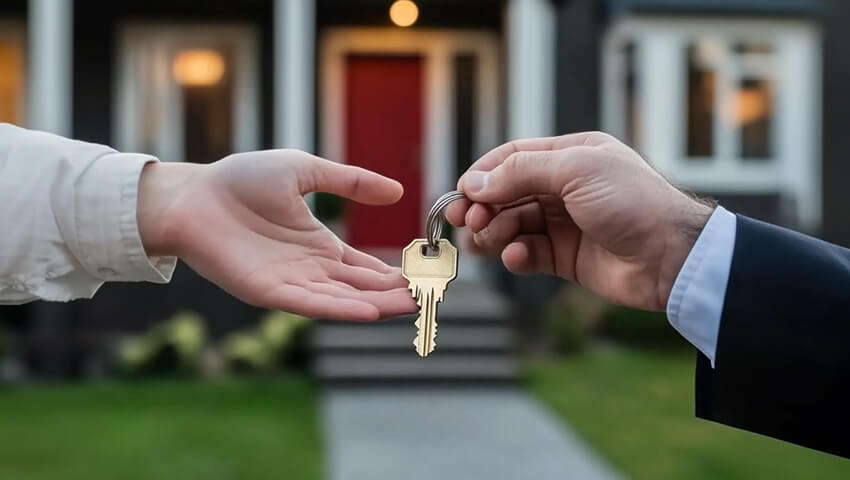Renting a home should offer peace of mind—not anxiety. But when you’re stuck with a bad landlord, the experience can quickly become stressful, confusing, and even unsafe. Whether it’s ignored maintenance requests, sudden rent hikes, or privacy violations, knowing how to protect your rights is essential.
In this guide, we’ll walk you through the signs of a problematic landlord, your rights as a tenant, steps you can take to resolve issues, and how tools like security cameras can help you stay protected and empowered.
Contents
Spot the Red Flags: Common Traits of a Bad Landlord
Not sure if your landlord’s behavior crosses the line? Watch out for these common warning signs:
• Avoiding Repairs: They delay or refuse to fix major problems like leaks, broken locks, or faulty wiring.
• Poor Communication: They’re hard to reach or give vague, inconsistent answers.
• Entering Without Notice: They show up unannounced, violating your privacy.
• Withholding Deposits: They won’t return your security deposit—or give no reason for deductions.
• Retaliation: They punish you for reporting problems or asserting your rights (e.g., by raising rent or threatening eviction).
If any of these sound familiar, you’re not alone—and there are steps you can take.
Know Your Rights as a Tenant
Understanding your legal rights is essential to navigating landlord disputes. While rental laws vary by country and state, several core principles usually apply:
• The Right to a Habitable Living Space
This means your home must be safe, sanitary, and in working order. This includes having:
Functional plumbing and electricity
Proper heating or cooling systems
A roof and walls that keep out the weather
No infestations of mold, rats, or insects
• The Right to Privacy
Landlords can’t enter without notice unless it’s an emergency. Most laws require at least 24 hours of notice and entry only during “reasonable” hours.
• Protection Against Retaliation
If you file a complaint or report code violations, your landlord cannot legally evict you or raise your rent in retaliation.
• Protection from Discrimination
Landlords may not treat you unfairly due to race, religion, national origin, gender, disability, or family status. This includes advertising, screening, and managing the rental.
Tip: Visit your local housing authority website or tenant advocacy group for laws specific to your region. In the U.S., HUD.gov is a great place to start.
Communicate Clearly—and in Writing
If you’re dealing with an issue:
• Start with a polite but direct message explaining the problem.
• Always use written communication (email, text, or certified letter) so you have a time-stamped record.
• Request a timeline for repairs or a clear explanation of any disputes.
Example:
“Hi [Landlord’s Name], I’ve noticed a leak in the ceiling since Monday. Could you please have someone take a look by the end of the week? Thank you!”
Document Everything
When things go south, documentation is your best ally.
• Save all communications: Email and text are better than phone calls, as they leave a paper trail. Screenshot messages if needed.
• Photograph or film problems: Broken locks, water damage, and unsafe wiring should be captured with clear images. Video is especially helpful for documenting behavior like illegal entry or harassment.
• Track repair requests: Keep a log of what was reported, when, and how your landlord responded.
Pro Tip: Install a ZOSI indoor security camera to visually log entryways, conversations, or recurring issues like water leaks or pest activity. This protects your privacy and gives you proof in case legal help is needed. Consider installing a ZOSI C518 PT Camera to capture entryways, recurring issues like leaks or pest activity, and other significant moments. With its 2.4GHz/5GHz dual-band WiFi and 3MP resolution, this camera provides high-definition footage to document every detail, offering peace of mind and a solid record in case legal action is needed.
http://zositech.com/products/c518-4k-8mp-ptz-wifi-security-camera?_pos=1&_sid=218f17186&_ss=r
Seek Help When Needed
If respectful communication and documentation don’t work, it’s time to bring in help.
Options include:
• Tenant Unions: Many cities have tenant organizations that offer advice, workshops, and even legal representation.
• Local Housing Authority: They can conduct inspections, fine landlords, or compel repairs.
• Legal Aid Services: Free or low-cost legal advice may be available based on income level.
• Mediation Services: A neutral third party may help you and your landlord reach an agreement without going to court.
These steps often get better results than trying to handle it all alone.
Common Renter Problems—and How to Solve Them
Even responsible tenants can face frustrating situations caused by unresponsive or negligent landlords. Here are some common issues and how to handle them effectively:
Situation 1: Landlord Won’t Fix Broken Utilities (e.g., Heat, Hot Water, AC)
Problem:
You reported a broken heater or water heater, and days (or weeks) have passed without repair—even in freezing weather.
Solution:
• Send a written repair request with a deadline (e.g., “Please address this by [specific date] as it is a health and safety concern.”).
• Reference local housing codes requiring landlords to maintain essential services.
• If there’s no response, contact your local housing authority. Some cities allow you to pay for the repair yourself and deduct the cost from rent—but check local laws first.
Bonus Tip:
Use a ZOSI indoor camera to timestamp and record issues (e.g., temperature display or dripping leaks) as visual proof of neglect.
Situation 2: Landlord Enters Without Permission
Problem:
Your landlord uses a spare key to enter your apartment without notice—even when you’re not home.
Solution:
• Politely but firmly remind them that local laws typically require 24-hour notice unless it’s an emergency.
• Follow up with an email or text for documentation.
• If it continues, install a ZOSI camera facing the entryway and notify your landlord (transparently) that you’re recording for security purposes.
Legal Backup:
You may be able to report this to a tenant board or local authorities as a violation of your right to privacy.
Situation 3: Security Deposit Not Returned
Problem:
You moved out, cleaned the apartment, and left it in good condition—but your landlord refuses to return your security deposit or claims vague “damages.”
Solution:
• Request a written explanation and itemized list of deductions.
• Provide move-out photos and cleaning receipts as evidence.
• If they refuse without reason, you can often file a small claims court case, which usually costs little and doesn’t require a lawyer.
Prevention Tip:
Take before-and-after photos or video during move-in and move-out to avoid unfair claims.
Situation 4: Mold or Pest Infestation
Problem:
There’s visible mold on walls or a persistent rodent/cockroach issue—and the landlord is ignoring it.
Solution:
• Document the problem with photos and videos.
• Send a formal repair request in writing.
• Mold and infestations are usually considered habitability issues, meaning the landlord is legally required to address them.
• If ignored, you can escalate to your local health department or building inspector.
Situation 5: Illegal Rent Increase
Problem:
You receive a sudden rent hike with little to no notice—or the increase exceeds local rent control limits.
Solution:
• Research rent increase laws in your city or state (many areas require 30–60 days’ notice).
• Politely request clarification and cite applicable laws.
• If it’s unlawful, report the issue to your local rent board or housing authority.
Situation 6: Landlord Shuts Off Utilities as Retaliation
Problem:
After you complain about conditions or make a legal request, your landlord shuts off water, electricity, or gas.
Solution:
• This is illegal in most jurisdictions and considered a form of constructive eviction.
• Document everything.
• Report it immediately to a tenant rights organization or city code enforcement.
• Depending on your location, you may be allowed to break the lease without penalty.
Prevent Future Problems: Stay One Step Ahead
Bad landlords are easier to avoid when you’re proactive from the start. Here’s how to protect yourself in future rentals:
• Do Your Homework: Check reviews of the landlord or property. Talk to current tenants if possible.
• Read the Lease Carefully: Look for vague rules, unclear responsibilities, or anything that feels off.
• Document Move-In: Take photos and videos of the unit’s condition on day one. Share them with your landlord.
• Set Clear Boundaries: Communicate in writing and keep records. Be polite—but firm.
• Watch for Red Flags: Signs of poor maintenance or rushed answers during a tour? Trust your gut.

